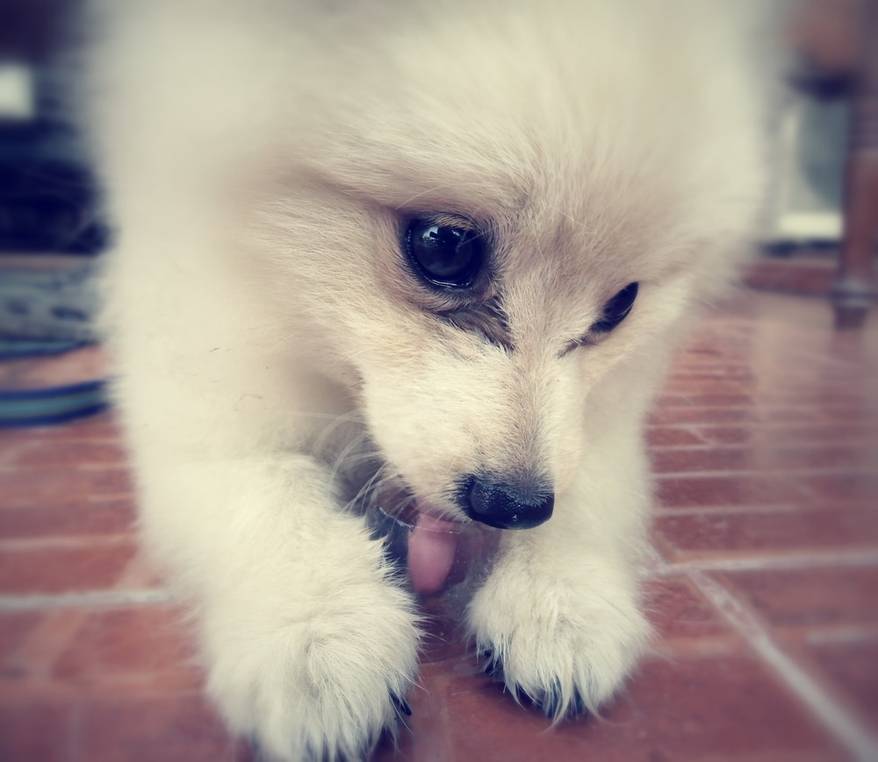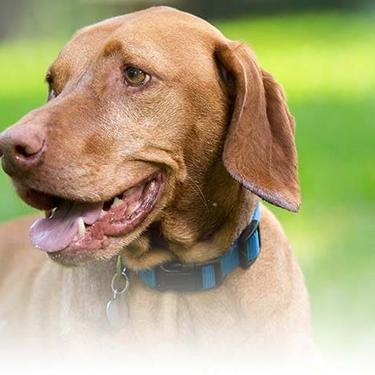
-
Find the right food for your pet
Take this quiz to see which food may be the best for your furry friend.
Find the right food for your pet
Take this quiz to see which food may be the best for your furry friend.
Featured products
 Small & Mini Savory Stew with Chicken & Vegetables Dog Food
Small & Mini Savory Stew with Chicken & Vegetables Dog FoodA delicious complement to the nutrition of Science Diet Small & Mini 7+ dog food
Shop Now Adult Healthy Cuisine Roasted Chicken, Carrots & Spinach Stew Dog Food
Adult Healthy Cuisine Roasted Chicken, Carrots & Spinach Stew Dog FoodDelicious roasted chicken paired with tender vegetables in a succulent stew
Shop Now Adult 7+ Perfect Digestion Chicken, Whole Oats & Brown Rice Recipe Dog Food
Adult 7+ Perfect Digestion Chicken, Whole Oats & Brown Rice Recipe Dog FoodScience Diet's breakthrough nutrition supports ultimate digestive well-being & healthy microbiome for dogs age 7+
Shop NowFeatured products
 Adult 7+ Senior Vitality Chicken & Vegetable Stew Cat Food
Adult 7+ Senior Vitality Chicken & Vegetable Stew Cat FoodImproves Everyday Ability to Get Up & Go
Shop Now Adult 7+ Tender Tuna Dinner Cat Food
Adult 7+ Tender Tuna Dinner Cat FoodWith delicious chunks in a decadent gravy
Shop Now Adult Savory Entrée Can Variety Pack Cat Food
Adult Savory Entrée Can Variety Pack Cat FoodPrecisely balanced nutrition with the delicious taste of savory minced chicken to help fuel the energy needs of cats during the prime of their life
Shop Now -
Dog
- Dog Tips & Articles
-
Health Category
- Weight
- Food & Environmental Sensitivities
- Urinary
- Digestive
- Joint
- Kidney
-
Life Stage
- Puppy Nutrition
- Adult Nutrition
- Senior Nutrition
Cat
- Cat Tips & Articles
-
Health Category
- Weight
- Skin & Food Sensitivities
- Urinary
- Digestive
- Kidney
-
Life Stage
- Kitten Nutrition
- Adult Nutrition
Featured articles
 Why Are Dogs and Cats So Cute?
Why Are Dogs and Cats So Cute?If waggy puppy dog tails and furry kitten yawns make you swoon, you're not alone. Why are cats so cute? And, dogs too! Let's find out!
Read More Do Dogs and Cats have Belly Buttons?
Do Dogs and Cats have Belly Buttons?Learn whether cats & dogs have belly buttons like humans, what the function is, and if there are any health concerns associated with it.
Read More Does My Pet Hate Me?
Does My Pet Hate Me?Learn tips for bonding with your pet if you've ever thought, 'My dog doesn't like me, or 'Why do I have a standoffish cat?'
Read More -


Nothing feels more like summer than enjoying a delicious ice cream cone. But eating a tasty frozen treat too quickly can create the dreaded brain freeze, changing pleasure into pain. Brain freeze refers to the temporary headache you may experience after eating cold foods too quickly. If you've ever watched your dog eat an ice cube, you may have wondered: Can dogs get brain freeze?
Brain freeze in dogs isn't a scientifically proven phenomenon, but a few signs could signal your dog is experiencing sudden, sharp pains in the head due to eating cold food or certain health conditions. Don't worry — there are ways to let your pup enjoy a nice, cold summer treat without worrying about brain freeze in dogs.
What Is Brain Freeze?
Before answering the question "Can dogs get brain freeze?" it's helpful to know what brain freeze is in the first place. When you eat cold foods, your brain tissue doesn't actually freeze! And even if it did, there are no pain receptors located in the brain, so you wouldn't feel pain.
In humans, a brain freeze is technically called a sphenopalatine ganglioneuralgia. That essentially means "pain of the sphenopalatine nerve ganglion," a bundle of nerves located near the trigeminal nerve that transmits sensory signals from the face. In people and dogs, these nerves are located near the back of the roof of the mouth and are highly sensitive to pain or other changes — most likely to protect the brain from injury.
That brain freeze sensation occurs when the tissue in the back of the mouth or throat is cooled rapidly by something like ice cream. The body senses the cooling sensation and automatically dilates blood vessels to that area, which humans perceive as painful. Once the body senses the temperature returning to normal, it sends signals to constrict the blood vessels, ending the temporary painful sensation.

What Are the Signs of Brain Freeze?
Symptoms of brain freeze in humans include temporary sharp or throbbing pain in the forehead associated with eating cold items too quickly. Since dogs and humans have similar nerves and circulatory structures on the roof of the mouth, it's possible they have similar reactions to gobbling icy treats. But since we can't ask dogs, we don't know for sure. Signs that a dog is experiencing discomfort after eating something cold include:
- Head shaking
- Rapid, violent sneezes
- Drooling
- Pawing or rubbing at their face
- Refusing to eat any more of the cold item
Rapid cooling of the roof of the mouth may also affect the trigeminal nerve in dogs. This nerve affects feeling sensations in much of a dog's face and also governs the motor function of the jaw, parts of the eyes and the area surrounding the eyes. Signs that could indicate your dog is experiencing trigeminal nerve pain or dysfunction include an inability to close the mouth, drooping eyelids and facial paralysis. If you notice any of these signs, it's likely not a brain freeze but a medical condition, so consult with your veterinarian as soon as possible.


Tasty Tips
If It's Not Brain Freeze, Then What Is It?
A number of health conditions in dogs can mimic the signs of brain freeze.
Dental Pain
While it's uncertain if dogs can experience brain freeze, they can experience dental pain. This can be associated with eating hot or cold items, or even a cracked or rotting tooth or mouth injury.
Other Neurological Conditions
Epilepsy can manifest as partial seizures and facial nerve weakness. Paralysis due to any number of conditions (ear infections, hypothyroidism, trauma, tumors or toxin exposure in botulism) can mimic behavior associated with brain freeze.
Facial nerve symptoms could also point to trigeminal neuritis, a rare inflammatory disease of the trigeminal nerve in dogs that leads to jaw paralysis.
Allergies
Dogs who experience food or environmental allergies can exhibit head shaking and sneezing.
If you aren't sure of the cause of your dog's behavior or are worried in any way, always consult with a veterinarian.
Can Dogs Get Brain Freeze? Be Smart With Icy Treats
While the answer to the question "Can dogs get brain freeze?" is uncertain, you can still take steps to minimize the discomfort associated with eating cold items. Here are some vet-approved tips for preventing brain freeze in dogs:
- Humans, unlike other mammals, have higher cognitive functioning and know to eat cold treats at a slower rate or to stop and take a break if they get brain freeze. Dogs don't have the cognitive power to know when to stop. Consider feeding your dog cold items more slowly in bite-sized chunks.
- Give your dog room temperature or cool water but not icy cold water.
- Many frozen treats, including ice cream, are too high in sugar and fat to be considered a good treat for your dog. In addition, sugar-free frozen treats often contain xylitol, which is toxic to dogs. Instead, feed your dog frozen treats that are safe and healthy, like these dog-friendly frozen treat recipes. Alternatively, you can fill a food-dispensing toy with canned dog food and treats, freeze it and let your dog go to town on it.
- If you notice odd behavior in your dog after they've eaten something cold, have your dog checked by a vet to ensure there isn't something else going on.
To avoid the possibility of brain freeze entirely, consider other ways to help your pup cool down this summer. Set up a kiddie swimming pool or a sprinkler in your backyard. Many dog-friendly water parks are also popping up all over the world to help keep dogs active, social and cool. Summer is the perfect time to have fun with your pet, but always give them some time in the shade and an opportunity to rest and rehydrate.


Dr. Sarah Wooten graduated from UC Davis School of Veterinary Medicine in 2002. A member of the American Society of Veterinary Journalists, Dr. Wooten divides her professional time between small animal practice in Greeley, Colorado, public speaking on associate issues, leadership, and client communication, and writing. She enjoys camping with her family, skiing, SCUBA, and participating in triathlons.
Related products

Delicious braised beef paired with tender vegetables in a succulent stew

Delicious roasted chicken paired with tender vegetables in a succulent stew

Science Diet's breakthrough nutrition supports ultimate digestive well-being & healthy microbiome for dogs age 7+

A delicious complement to the nutrition of Science Diet Small & Mini 7+ dog food
Related articles

Your dog's coat and skin are a big part of your dog's overall health. Ensure you keep your dog's coat healthy, by following these simple tips.

Hill's Science Diet Small & Toy Breed dog foods are designed to meet the nutritional needs for your small dog at every life stage. Learn more here.

Learn about choosing the right food for your mature or older dog, ensuring he receives the correct balance of nutrition.

Large and giant breed puppies have different nutritional needs than other dogs. Learn how to provide the special care they need to grow up big and strong.

Put your dog on a diet without them knowing
Our low calorie formula helps you control your dog's weight. It's packed with high-quality protein for building lean muscles, and made with purposeful ingredients for a flavorful, nutritious meal. Clinically proven antioxidants, Vitamin C+E, help promote a healthy immune system.
Put your dog on a diet without them knowing
Our low calorie formula helps you control your dog's weight. It's packed with high-quality protein for building lean muscles, and made with purposeful ingredients for a flavorful, nutritious meal. Clinically proven antioxidants, Vitamin C+E, help promote a healthy immune system.

